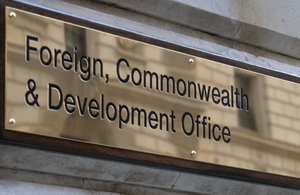The report, Deaths of people identified as having learning disabilities with COVID-19 in England in the Spring of 2020 examined data from The English Learning Disabilities Mortality Review (LeDeR) and NHS England’s COVID-19 Patient Notification System (CPNS) which records deaths in hospital settings.
It found 451 per 100,000 people registered as having a learning disability died with COVID-19 between 21 March and 5 June, a death rate 4.1 times higher than the general population after adjusting for other factors such as age and sex.
But as not all deaths in people with learning difficulties are registered on these databases, researchers estimated the real rate may have been as high as 692 per 100,000, 6.3 times higher.
Deaths were also spread much more widely across the age spectrum among people with learning disabilities, with far greater mortality rates in younger adults, compared to the general population. The death rate for people aged 18 to 34 with learning disabilities was 30 times higher than the rate in the same age group without disabilities, researchers found.
Among people with learning disabilities, the rate of COVID-19 deaths for adults in residential care was higher than the rates of COVID-19 deaths of adults with learning disabilities generally. This difference is likely in part to reflect the greater age and disability in people in residential care.
People with learning disabilities are more likely to have other physical health problems such as obesity and diabetes, and certain kinds of learning disability, such as Down’s syndrome, can make people more vulnerable to respiratory infections, which can increase their risk of dying from COVID-19.
Professor John Newton, Director of Health Improvement at Public Health England, said:
It is deeply troubling that one of the most vulnerable groups in our society suffered so much during the first wave of the pandemic. We must do everything possible to prevent this happening again.
There are now regular tests in care homes to make sure cases of coronavirus can be quickly identified and isolated, even if people do not recognise the symptoms themselves.
But with cases developing across the country, it is essential to practice rigorous infection control if you are in contact with someone with a learning disability, whether or not they live in a care home.
Wash your hands, wear a mask and keep a safe distance. The fewer people you meet, the more you’ll stop the spread.
A learning disability is a significantly reduced ability to understand new or complex information and learn new skills and a reduced ability to cope independently which started before adulthood, with a lasting effect on development. That means that people with learning disabilities often may find it harder to manage basic everyday skills, and rely upon support for many tasks, including communicating, managing money or looking after themselves.
People with learning disabilities are likely to have had difficulty recognising symptoms of COVID-19, or following government advice about getting tested, self-isolation, social distancing and infection prevention and control, the report says. It may also be more difficult for people caring for them to recognise the onset of symptoms if these cannot be communicated.
Helen Whately, Minister of State for Social Care, said:
Every death from COVID-19 has been a tragedy, and my deepest sympathies go out to everyone who has lost loved ones during the pandemic. I know how difficult this pandemic has been for people with a learning disability and those who care for them.
A third of those with learning disabilities who sadly died were living in residential care. There is now regular testing of staff and residents in care homes, and testing has also been rolled out to supported living settings in high risk areas. We’re also offering free PPE, and the Joint committee on vaccines and immunisation has proposed those living and working in care homes should be top of the list for vaccination.
This report adds to our knowledge of COVID-19 and how those with learning disabilities are affected by this cruel disease. I am asking SAGE to review the findings and give advice on what more we can do to keep people safe.
The report, Deaths of people identified as having learning disabilities with COVID-19 in England in the Spring of 2020, followed a formal commission from Department of Health and Social Care, with the support of the Chief Medical Officer, to conduct further analysis of available data related to the deaths of people with learning disabilities from COVID-19 to inform policy and practice.
Resources for people with learning disabilities and their carers can be found at NHS – learnining-disability and autism


